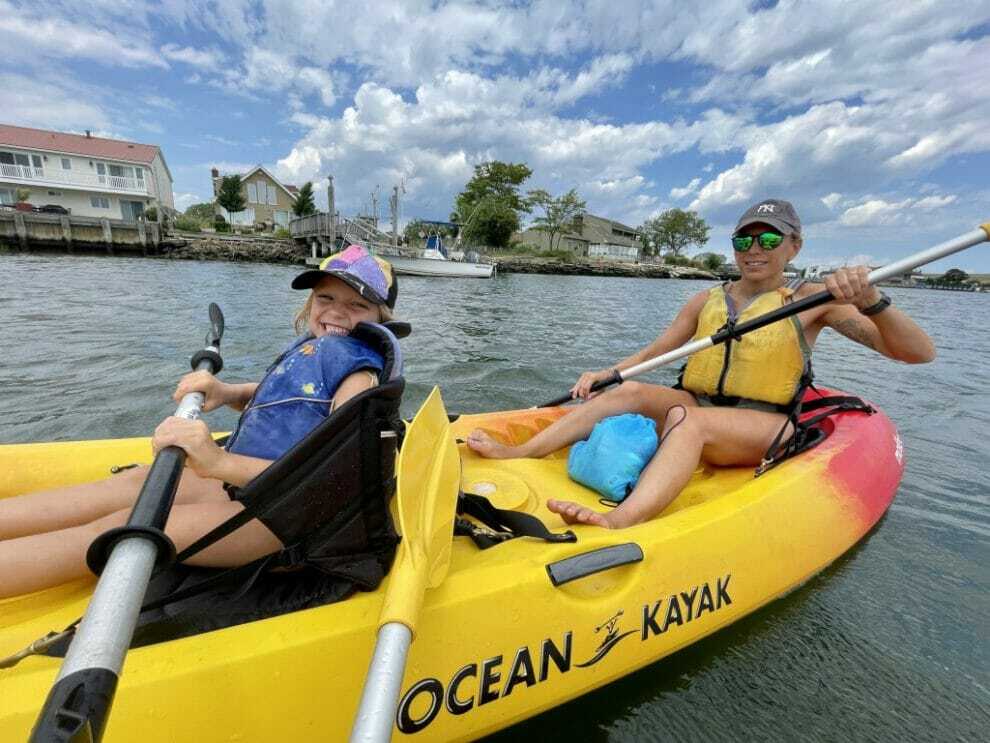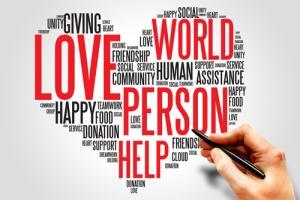It’s well into 2023 now– holiday lights have been taken down, and the New Year’s confetti has (hopefully) been swept from all the hidden corners of the living room. We’re back into our routines, and perhaps in the spirit of resolutions, have even incorporated new ones into our lives.
As we settle into this next journey around the sun, I have found myself reflecting on the last 12 months, taking stock of what I’ve learned and how my family and I have grown together and as individuals. While there have been hundreds of quiet, subtle, and small lessons learned, here are the three larger takeaways that I keep coming back to.
It’s Okay To Walk Away
One of the biggest discoveries I made since becoming a parent is that I’m very sensitive to sound. Truly, I had no idea until my children entered the toddler years. I’ve cheered at sporting events and love live music, so I definitely did not expect that two little kids could leave me a ball of anxiety, ready to unravel with one more whine, screech, or bang. As I did more research though, I realized what I was really experiencing was sensory overload, which is pretty common among parents of young children. Sensory overload happens when we get more sensory input from our five senses than our brains can manage and process. It triggers the fight or flight response which can, in turn, lead to a burst of anger or the intense desire to walk out the front door just for a moment’s peace.

Experiences Over Expenses
Everyday, we are sort of living out two lives: one part of us is experiencing the world moment by moment, taking in new information, and making decisions in real time. The other part is continuously making these moments into memories and filing them away for later replay and reference. Our past experiences inform how we move through the world and interact with others. And when it comes to memories themselves, part has to do with the physical experience and the other part how we remember feeling during the experience. Think for a moment of a favorite teacher, the summer camp talent show, or when you finally got the hang of riding a two- wheeler. The thing you are remembering right now is partly the actual details: Mrs. Cohen’s squeaky shoes, the song you sang, or the bright red frame of your first big kid’s bike. But what you’re really sinking your teeth into, what is making you smile to yourself or suddenly feel anxious, is the memory of how you felt when you did that thing. Our lives, in a sense, depend upon our memories.
Even more, research shows that regardless of price points, happiness and a greater sense of well-being is associated with experiences over anything material. So when it comes to our kids, how they feel about the past and the decisions they make for their futures will have much more to do with the delight of an autumn rain- walk around the neighborhood than the expensive Nintendo Switch they received on Christmas. Now, when my husband and I find ourselves overwhelmed by trying to “keep up with the Joneses,” we know we don’t have to spend a lot of money to create experiences for our kids– and ourselves– that will become meaningful memories that make up a good life.
You Can’t Learn to Swim if You’re Scared

But when we enrolled our kids in the local swim school, we were introduced to a different approach. At the first lesson, they did little beyond sitting waist- deep on the pool steps, playing with the instructors. I remember feeling worried and embarrassed as I watched other children happily practice back floats and use the kickboards to wade across the pool independently. Meanwhile, my kids were being instructed to squirt water on their heads. One of the staff members must have seen the concern on my face and saddled up beside me. She told me that the most important thing was to get the kids comfortable with the water because you can’t learn to swim if you’re scared. Fear causes us to tense up and panic, which are the exact two things we don’t want to do if we intend to stay afloat. Even more, they believed that it was about more than learning to swim, but about learning to love the water. None of that would come to pass if we simply threw them into the deep end. Yes, maybe they’d learn to swim, but a love of water? Probably not. After a year of work, our kids are ready to dive under ocean waves and get on surfboards this summer. What we learned from the swim school we have used as a guiding light for much of our parenting– when the kids are resisting or refusing, if we do just a little digging, we find that at the center of the resistance is fear, not defiance or ‘bad behavior.’ If we can make them feel safe and supported, they can trust, let go, and float on.














Add Comment